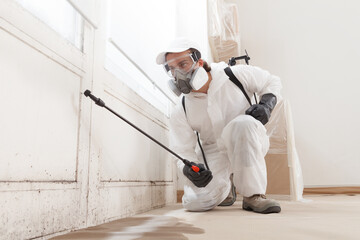Water is one of the most vital resources for life, but when it becomes contaminated, it can pose serious risks to health, safety, and the environment. Water remediation is the process of treating and restoring water to safe and usable conditions. Whether contamination comes from natural disasters, industrial activities, or household issues, water remediation ensures that communities and properties can function safely once again.

This comprehensive approach not only addresses immediate concerns but also prevents long-term damage to property, ecosystems, and public health. Understanding water remediation, its methods, and its benefits is key to appreciating its importance in modern living.
What is Water Remediation
Water remediation refers to the removal of contaminants and pollutants from water sources, making them safe for human use, environmental health, and industrial applications. It goes beyond simple filtration by addressing chemical, biological, and physical contaminants.
This process may apply to drinking water systems, wastewater treatment, stormwater cleanup, or flooded buildings. By eliminating harmful substances and restoring water quality, water remediation protects both people and the environment.
Causes of Water Contamination
Water contamination can occur for various reasons, many of which require professional remediation to ensure safety:
- Flooding – Natural disasters often introduce debris, sewage, and hazardous materials into water supplies.
- Sewage Backup – A common problem in residential and commercial properties that requires immediate attention.
- Industrial Waste – Factories and facilities may release chemicals that contaminate nearby water sources.
- Agricultural Runoff – Pesticides, fertilizers, and animal waste can seep into groundwater or rivers.
- Broken Pipes – Leaks and infrastructure failures can mix clean water with pollutants.
Identifying the source of contamination is the first step toward effective remediation.
Methods of Water Remediation
Different techniques are used depending on the type of contamination and the severity of the problem. Some common methods include:
- Filtration Systems
- Mechanical filters remove sediments, debris, and larger particles from water. Advanced filters, such as activated carbon, can absorb chemicals and improve taste and odor.
- Chemical Treatment
- Disinfectants like chlorine or ozone are used to kill bacteria, viruses, and other pathogens. Chemical neutralization may also remove harmful substances.
- Bioremediation
- This method uses microorganisms to break down pollutants in water. It is an eco-friendly approach often used for organic contaminants.
- Aeration
- Introducing air into water helps remove volatile chemicals and improves oxygen levels, making water safer and clearer.
- Pump and Treat Systems
- Contaminated groundwater is pumped out, treated through filtration or chemical processes, and then reintroduced as clean water.
- Soil Washing and Containment
- In cases where water contamination comes from soil pollutants, the soil is treated to prevent further spread into water systems.
These methods can be used individually or combined, depending on the complexity of the contamination.
The Importance of Water Remediation
Water remediation is not just about clean water—it directly impacts health, safety, and sustainability. Its importance includes:
- Health Protection – Contaminated water can carry bacteria, viruses, and toxic chemicals that cause disease. Remediation ensures safe water for drinking, cooking, and cleaning.
- Environmental Preservation – Polluted water harms ecosystems, affecting plants, animals, and aquatic life. Cleaning contaminated water helps maintain balance in natural habitats.
- Property Protection – Flooding and water damage can weaken structures and lead to mold growth. Remediation restores safety and prevents long-term deterioration.
- Regulatory Compliance – Many industries are required to meet water safety standards, making remediation essential for legal and operational purposes.
- Resource Conservation – By treating and reusing water, remediation helps reduce waste and promotes sustainability.
Water Remediation in Flooded Properties
One of the most common situations where water remediation is needed is after flooding. When water enters a property, it brings not only moisture but also contaminants. The process usually involves:
- Water Extraction – Removing standing water quickly to prevent further damage.
- Drying and Dehumidification – Using specialized equipment to eliminate moisture from walls, floors, and furniture.
- Cleaning and Disinfection – Treating affected areas with antimicrobial solutions to eliminate bacteria and prevent mold.
- Structural Repairs – Fixing damaged foundations, walls, or flooring to restore property integrity.
Swift action is critical in flood-related remediation to minimize health risks and costly repairs.
Challenges in Water Remediation
While effective, water remediation comes with certain challenges:
- Hidden Contamination – Some pollutants, like chemicals or heavy metals, are invisible and require advanced testing.
- Cost and Resources – Large-scale remediation projects can be expensive and require specialized equipment.
- Time Sensitivity – Delays in addressing water contamination increase risks of mold, structural damage, and health hazards.
- Environmental Factors – Weather, soil type, and surrounding ecosystems can affect remediation strategies.
Despite these challenges, ongoing advancements in technology are making water remediation more efficient and accessible.
Innovations in Water Remediation
Modern approaches are enhancing the effectiveness of water remediation. Some innovations include:
- Nanotechnology Filters – Ultra-fine filters that can remove even microscopic contaminants.
- UV Light Treatment – Using ultraviolet light to kill pathogens without adding chemicals.
- Smart Monitoring Systems – Real-time sensors that detect contamination and trigger automated responses.
- Sustainable Remediation – Eco-friendly methods such as constructed wetlands and green filtration systems.
These innovations improve outcomes while reducing environmental impact.
Preventive Measures for Clean Water
While remediation is essential, prevention remains the best approach. Regular maintenance of plumbing systems, proper waste disposal, and responsible agricultural practices can reduce the risk of contamination. On a larger scale, community awareness and sustainable water management play a vital role in preventing future issues.
Water remediation is a critical process that ensures safe, clean, and reliable water for both people and the environment. By addressing contamination through proven methods like filtration, chemical treatment, and bioremediation, this practice restores not only water quality but also health and safety.
With innovations in technology and a growing focus on sustainability, water remediation continues to evolve, offering efficient solutions to modern challenges. Protecting water means protecting life, making this process an indispensable part of our future.